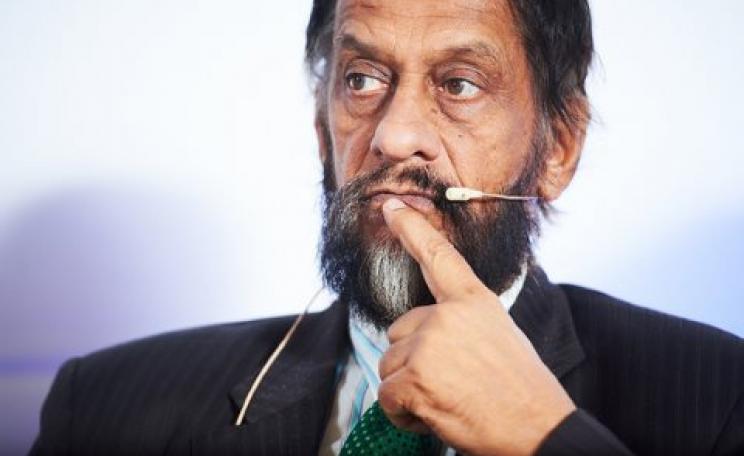The longer Europe continues to close its doors to GM, the greater the risk that the rest of the world will bypass us altogether.
The Biotech revolution will bypass Europe if farmers shut doors to GM crops, the environment secretary told the Oxford Farming Conference today.
Owen Paterson, a long-standing fan of biotechnology, cited a study last June that found "compelling evidence" that genetically modified crops could benefit farmers, consumers, the environment and the economy. He warned the Conference:
"The longer Europe continues to close its doors to GM, the greater the risk that the rest of the world will bypass us altogether. Europe risks becoming the museum of world farming as innovative companies make decisions to invest and develop new technologies in other markets."
Key test coming up in the EU
A key test of the appetite for GM crops among EU member states will come later this month, when there will be a vote on whether to allow cultivation of a variety of maize that has been made insect-resistant through genetic engineering.
If it is licensed, it would be the first GM food crop authorised for planting by the EU in 15 years. However, there is significant opposition to the proposal.
Paterson stopped short of urging other member states to vote for the licence, which will not affect UK farmers, but said any decisions must be based "on the scientific evidence", in contrast to the "politically motivated" delays and blocks to GM crops in the past.
"I will continue to make the case for a regime that allows fair market access for products once they have passed Europe's rigorous, independent scientific assessment", he said.
Henry Robinson, president of the Country Land and Business Association, representing rural landlords, said: "While almost no one believes GM is a total solution to food security, it should be available to farmers where evidence shows it is safe and suitable."
What about organic food?
But green campaigners said investment in organic farming would be a better bet for environmentally sustainable agriculture. Peter Melchett, policy director of the Soil Association, said:
"We are concerned about the immediate prospects for organic food, as the organic market has moved back into growth. The prospects of the UK organic market increasing are being held back by the fact that UK organic farmers get the lowest level of financial support of any EU country."
EU subsidies directed towared organic farmers in other member states amount to £140 per hectare, but in England the figure is about £60 per hectare, according to Melchett. In countries including France, Germany, Italy and Sweden, the subsidy can rise to as much as £250 per hectare.
When is 'British' food British?
The longer Europe continues to close its doors to GM, the greater the risk that the rest of the world will bypass us altogether.
The environment secretary also said he wanted to see more of the UK's food produced here, while acknowledging that complex rules over labelling could confuse consumers.
About a quarter of the food eaten in the UK is imported, but the rules over labelling make it hard for people to judge whether food is truly British.
Food that has been been grown or raised elsewhere and then brought to this country for processing, including meat that has been slaughtered or repackaged here, can carry a British label of origin.
Many farmers are bitterly opposed to this ease of relabelling, because British welfare and production standards are often higher than those of other countries. UK farmers can be undercut by foreign competition on foods that are labelled as coming from the UK when they have really been imported. Consumers can easily be confused by such labels.
Paterson said there was "no single answer" to this conundrum, but that technology could play a part, in allowing food to be more traceable and better labelled.
He declined to go into detail on what forms of technology could be used in this regard. However, the horsemeat scandal, in which quantities of horse flesh were found in processed foods labelled as beef, demonstrated the uses of DNA testing.
Red tape pledge
Paterson also pledged to cut "red tape" on British farmers, in a move he said would save £70m for hard-pressed rural communities and taxpayers over the next decade. The changes will affect the size of some farms, and the ways in which livestock are moved around the country.
For instance, sheep farms will be allowed to cover a greater area, and temporary grazing within ten miles of a farm will no longer have to be explicitly reported. This will allow farmers greater freedom of movement for their livestock within their local area.
Paterson said that farming and food production was one of the most important industries in the UK - the biggest manufacturing sector, worth nearly £100bn and employing about 4m people. Farming alone contributes £9bn a year to the economy.
He said: "Farming is a cornerstone of our economy but for too long farmers have had to operate within overly complex rules and requirements."
The widespread movement of animals around the country has been blamed for the spread of bovine tuberculosis.
Despite recent reports of the soaring costs of the badger culls, Paterson defended the trials and claimed that the disease would cost taxpayers £1bn in the next decade if strong action was not taken.
Fiona Harvey is Environment Correspondent for The Guardian. This article was first published by the Guardian under the title Owen Paterson: Embrace GM or risk becoming 'museum of world farming'. It is reproduced here by kind permission via the Guardian Environment Network.







